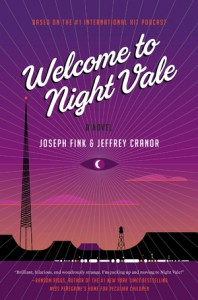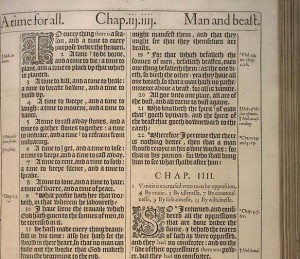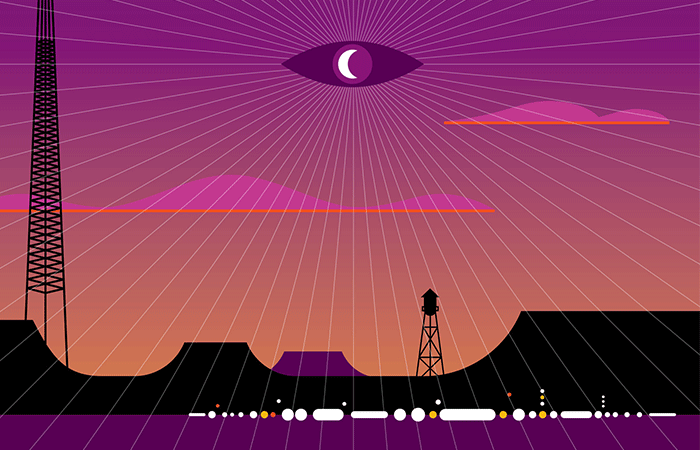 If you’ve ever listened to the Welcome to Night Vale podcast, then you already know this fictional (one can only hope) little town that bakes under a desert sun (one presumes it is our sun, too) in the American Southwest is a strange place.
If you’ve ever listened to the Welcome to Night Vale podcast, then you already know this fictional (one can only hope) little town that bakes under a desert sun (one presumes it is our sun, too) in the American Southwest is a strange place.
- Secret police patrol the streets in marked cars, keeping citizens under constant surveillance.
- Bus drivers have no eyes, and wear sunglasses.
- Fewer than one in five of its tarantulas graduate from high school.
- Believing in the existence of mountains endangers your reputation, and touching plastic lawn flamingos threatens your stability in the time-space continuum.
- The petting zoo holds a “city-wide lottery whose winners are fed to the hungry wolves.”
- The angels who gather on Old Woman Josie’s lawn, and who do not exist, are all named Erika.
- And the public library has bloodletting rooms as well as reading rooms, racks of imaginary magazines (subscriptions cost $19.95 a month), and sickening, slithering, tentacled librarians from another plane of existence. (Or worse.)
“Look,” our authors tell us, “life is stressful. This is true everywhere. But life in Night Vale is more stressful.”
Night Vale, Lovecraftian Lake Wobegon
Created by Joseph Fink and coauthored with podcast cowriter Jeffrey Cranor, Welcome to Night Vale immerses us in a town that is what Lake Wobegon would have been like had it been dreamed up by H.P. Lovecraft. (Night Vale literally is a town that time forgot—time simply doesn’t work quite right there.)
It’s Our Town meets The Prisoner, The X-Files meets Happy Days. It’s Village of the Damned played for belly laughs and Leave it to Beaver played for abject existential horror (of which Leave it to Beaver contains more than you might guess).
By turns raucously funny and surprisingly unsettling, Welcome to Night Vale includes all the fascinating incongruities, absurdities, and non sequiturs the podcast’s fans expect. I’m tempted to fill this book review with detail after detail from the unique, irresistibly bizarre world Fink and Cranor have created. (One of my favorites? “…by law, police are required to describe the nature of the sunlight at the time of the infraction in verse, although meter and rhyme are optional.”)
But the novel’s more-than-slightly askew setting is only part of its appeal. Fink and Cranor flesh out two of Night Vale’s residents, 19-year-old pawnshop owner Jackie Fierro (who has been 19 for decades, if not longer) and single mother Diane Crayton (who struggles to connect with her adolescent, shape-shifting son, Josh), to a remarkably affecting degree. Both haunted by visions of a strange man in a tan jacket who burdens them with pieces of indestructible paper they can’t get rid of—trust me, the novel’s masterful narrative voice makes it incredibly compelling reading—Jackie and Diane eventually find each other and forge a friendship as they seek solutions to their mysteries.
Night Vale’s Metaphors For Everyday Absurdity
Welcome to Night Vale is strongest when its strange and supernatural circumstances become metaphors for the struggles all of us face, wherever we live. Here is Josh, for instance—at the time, sporting antennae and red claws—contemplating his true self as Diane desperately tries to talk to him:
Josh stood perfectly still. This was the moment he feared most. This was how conversations with his mother went. He just wanted it to be over and for himself to be out in the world… [where] he could start to figure out who he was beneath all of the forms he took every day, beneath whatever he looked like to the world in any given moment.
Or here’s Diane and Jackie, just after trying to escape leave town:
Jackie tried to think of a time she had ever been this far outside of Night Vale. All she could remember were endless days at the pawnshop. For the first time, she felt sad thinking about those days rather than nostalgic. She didn’t know what that meant.
“Diane, what does it mean when you know you’re feeling something but you don’t know what that feeling is?”
Diane considered this seriously for a long time.
“It means you’re growing older.”
“I never grow older.”
“I guess we all thought that once.”
These are beautiful moments, treated so casually amidst the crazy conspiracies and impossible possibilities that fill the book’s pages. At points like these, Welcome to Night Vale reminds me of the best episodes of The Twilight Zone or Buffy the Vampire Slayer, stories in which all “weirdness” melts away to confront us with just how “weird” what we call real life really is.
How often do we make our peace with emotional isolation and limited horizons, without even realizing we’ve done so? How much do we set aside our own nagging sense that things aren’t right and decide we’re wrong, simply because everyone around us accepts things as normal? Questions like these lurk just beneath the book’s surface, challenging us to stop listening to Cecil—Night Vale’s always on-air community radio announcer, whose dulcet tones reassure residents that everything, no matter how dangerous or dystopian, will be just fine—and instead, like Jackie and Diane, to engage the world and shape our own futures, no matter how terrifying the prospect.
Night Vale And Ecclesiastes
 Welcome to Night Vale seems to share some sensibilities with the book of Ecclesiastes. At one point, Diane tells Jackie, “Everything I do is for a reason, and I know none of them. Everything makes sense, and the sense is hidden from me. We live in a pattern that we’ll never detect, and that will shuffle us through invisible hierarchies to the actual death of us.” Her words aren’t so unlike the Teacher’s: we “cannot find out what God has done from the beginning to the end” (Ecclesiastes 3.11, NRSV), so “whatever your hand finds to do, do with your might; for there is no work or thought or knowledge or wisdom in Sheol, to which you are going” (9.10, NRSV).
Welcome to Night Vale seems to share some sensibilities with the book of Ecclesiastes. At one point, Diane tells Jackie, “Everything I do is for a reason, and I know none of them. Everything makes sense, and the sense is hidden from me. We live in a pattern that we’ll never detect, and that will shuffle us through invisible hierarchies to the actual death of us.” Her words aren’t so unlike the Teacher’s: we “cannot find out what God has done from the beginning to the end” (Ecclesiastes 3.11, NRSV), so “whatever your hand finds to do, do with your might; for there is no work or thought or knowledge or wisdom in Sheol, to which you are going” (9.10, NRSV).
It may seem a bleak vision, and many Christian readers would deny that it captures the whole truth about life. But in the end, Welcome to Night Vale affirms our importance to each other. As Diane says to Jackie, “Thank you for keeping me company in my nightmare.” Not a bad summary of our duty to each other as human beings. Sometimes that’s exactly what loving our neighbor entails.
Welcome to Night Vale is one of the most original, unusual, and entertaining novels I’ve read recently. This Halloween, treat yourself to a trip to Night Vale, via novel or podcast. You’ll be glad you visited.
Just watch out for the secret police.
And the plastic lawn flamingos.
And, for the love of all that’s holy, those librarians.
If you’ve read Welcome to Night Vale, let’s talk about it in the comment section. (Just don’t let the Glow Cloud overhear. All hail the Glow Cloud!)
Image of Ecclesiastes found at http://www.kingjamesbibleonline.org/Ecclesiastes-Chapter-3_Original-1611-KJV/.


Leave a Reply